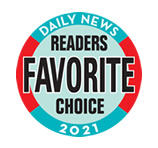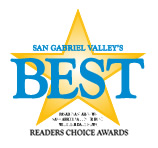- Home
- Programs[+]
- Getting Started[+]
- Why ACC[+]
- Locations[+]
- Newsroom[+]
- Contact Us
Curriculum effective for students enrolling for a start date on or after July 21, 2023.
Classification of Instructional Programs (CIP): 51.0803 (Occupational Therapist Assistant)
Standard Occupational Classification (SOC) Code: 31-2011.00 (Occupational Therapy Assistants), 31-2012.00 (Occupational Therapy Aides)
Quarter Credits: 99.0
Clock Hours: 1760
Method of Delivery: Blended
Number of Weeks: 80*
*Weeks May be Extended Depending on Holiday and Break Schedules
The students in the Occupational Therapy Assistant (Associate of Occupational Science) program are educated to practice as occupational therapy assistants (OTA). The OTA works under the supervision of the occupational therapist (OT). Throughout the curriculum, OTA students are exposed to traditional areas of practice where occupational therapy professionals deliver their services. These areas of practice include, but are not limited to: working with children and youth in clinical inpatient outpatient services, as well as in schools; working with adults in clinical inpatient outpatient services, as well as in work hardening programs; working with older adults in hospitals, long-term care facilities, and in adult day care centers; and working with adults with mental health and behavioral challenges who receive OT services in behavioral clinics, acute care community hospitals, and state hospitals. The students will have exposure to emerging practice areas, specifically to the driver rehabilitation program.
The OTA program teaches students to implement occupational therapy treatment care plans, train and educate clients and their caregivers, collaborate with clients in designing therapeutic activities, be sensitive to clients’ different cultural backgrounds, embrace occupation-based practice as “the means and the end” of the OT practice, and to collaborate with other health care professionals to provide excellent, occupation-based and client-centered care.
The OTA program curriculum, in congruency with our philosophical belief that humans are active beings, encourages students into becoming active in their own process of learning. The curriculum is organized following a human developmental model (biological and psychological) as the conceptual curriculum framework and the three domains of Bloom’s Taxonomy of Learning Domains as the categories of educational activities. The human developmental model is used to guide students in learning and understanding the impact of challenges on occupational performance during the life span of individuals, as well as developing their clinical skills. The three domains of Bloom’s taxonomy (knowledge, skills, and attitude) are applied throughout the curriculum. The curriculum involves the acquisition of knowledge and the development and shaping of intellectual skills as students begin to recognize facts, procedural patterns, as well as concepts that help in developing cognitive skills. The acquisition of skills pertinent to the profession, such as practice of hands-on activities, is of utmost importance and is used extensively in the curriculum. Personal attitude is very important in the delivery of health care. As such, OTA students’ awareness of their own behavioral strengths and weaknesses and how that affects their attitude is strongly emphasized from day one of the program. This is accomplished through self-assessment of behavior using a modified form of the Generic Abilities Assessment tool.
The program is 99 quarter credits to be completed in twenty months. The last four months of the program are dedicated to a full time Fieldwork experience (clinical education under the supervision of an OTA or OT professional).
Graduates of the Occupational Therapy Assistant program will be eligible to take the national certification examination for the occupational therapy assistant administered by the National Board for Certification in Occupational Therapy (NBCOT). After successful completion of this exam, the individual will be a Certified Occupational Therapy Assistant (COTA). In addition, most states require licensure in order to practice and licenses are usually based on the results of the NBCOT Certification Examination.
Note that a felony conviction may affect a graduate’s ability to perform fieldwork, take the NBCOT certification examination, and attain state licensure.
Program Location: Anaheim
Course Number | Title | Clock Hours | Quarter Credits |
|---|---|---|---|
| ANAT200 | Introduction to Anatomy and Physiology | 20 | 2.0 | ANAT200-L | Introduction to Anatomy and Physiology Lab | 40 | 2.0 |
| ENGL100 | Written Communications I † | 40 | 4.0 | MATH100 | College Mathematics I | 40 | 4.0 |
| PSYC100 | Introduction to Psychology † | 40 | 4.0 |
Totals | 180 | 16.0 |
Course Number: ANAT200 | |
|---|---|
| Title | Introduction to Anatomy and Physiology |
| Clock Hours | 20 | Quarter Credits | 2.0 |
Course Number: ANAT200-L | |
| Title | Introduction to Anatomy and Physiology Lab |
| Clock Hours | 40 | Quarter Credits | 2.0 |
Course Number: ENGL100 | |
| Title | Written Communications I † |
| Clock Hours | 40 | Quarter Credits | 4.0 |
Course Number: MATH100 | |
| Title | College Mathematics I |
| Clock Hours | 40 | Quarter Credits | 4.0 |
Course Number: PSYC100 | |
| Title | Introduction to Psychology † |
| Clock Hours | 40 | Quarter Credits | 4.0 |
TOTALS | |
| Clock Hours | 180 |
| Quarter Credits | 16.0 |
Course Number | Title | Clock Hours | Clinical Hours | Quarter Credits |
|---|---|---|---|---|
| ANAT206 | Anatomy and Physiology for Rehab Professionals ‡ | 60 | 0 | 4.0 |
| OTA100 | Principles of OT | 20 | 0 | 2.0 |
| HP205 | Professional Communication for Health Professionals ‡ | 50 | 0 | 3.0 |
| OTA130 | Conditions in Occupational Therapy I ‡ | 60 | 0 | 4.0 |
| OTA200 | Therapeutic use of Occupations | 60 | 0 | 4.0 |
| OTA170 | Conditions in Occupational Therapy II ‡ | 60 | 0 | 4.0 |
| OTA210 | Human Structure and Function in Occupational Therapy ‡ | 60 | 0 | 4.0 |
| MDTR400 | Medical Terminology † | 10 | 0 | 1.0 |
| OTA220 | Group Dynamics and Leadership ‡ | 30 | 0 | 2.0 |
| OTA225 | Introduction to Fieldwork | 20 | 0 | 1.0 |
| OTA245 | Occupational Performance from Birth to Adolescence ‡ | 80 | 0 | 5.0 |
| OTA230 | Level I Fieldwork | 80 | 60 | 3.0 |
| OTA250 | Occupational Therapy Services in Psychosocial Settings ‡ | 60 | 0 | 4.0 |
| OTA260 | Occupational Performance in Adulthood ‡ | 80 | 0 | 5.0 |
| HP220 | Inter-professional Collaborative Practice & Cultural Competence in Healthcare ‡ | 40 | 0 | 3.0 |
| OTA270 | Occupational Performance in the Elderly ‡ | 80 | 0 | 5.0 |
| OTA280 | OTA Clinical Competency | 30 | 0 | 2.0 |
| HP230 | Business Concepts in Healthcare ‡ | 20 | 0 | 2.0 |
| OTA300A | Level II Fieldwork A § | 340 | 320 | 12.5 |
| OTA300B | Level II Fieldwork B § | 340 | 320 | 12.5 |
Totals | 1580 | 700 | 83.0 |
Course Number: ANAT206 | |
|---|---|
| Title | Anatomy and Physiology for Rehab Professionals ‡ |
| Clock Hours | 60 |
| Clinical Hours | 0 |
| Quarter Credits | 4.0 |
Course Number: OTA100 | |
| Title | Principles of OT |
| Clock Hours | 20 |
| Clinical Hours | 0 |
| Quarter Credits | 2.0 |
Course Number: HP205 | |
| Title | Professional Communication for Health Professionals ‡ |
| Clock Hours | 50 |
| Clinical Hours | 0 |
| Quarter Credits | 3.0 |
Course Number: OTA130 | |
| Title | Conditions in Occupational Therapy I ‡ |
| Clock Hours | 60 |
| Clinical Hours | 0 |
| Quarter Credits | 4.0 |
Course Number: OTA200 | |
| Title | Therapeutic use of Occupations |
| Clock Hours | 60 |
| Clinical Hours | 0 |
| Quarter Credits | 4.0 |
Course Number: OTA170 | |
| Title | Conditions in Occupational Therapy II ‡ |
| Clock Hours | 60 |
| Clinical Hours | 0 |
| Quarter Credits | 4.0 |
Course Number: OTA210 | |
| Title | Human Structure and Function in Occupational Therapy ‡ |
| Clock Hours | 60 |
| Clinical Hours | 0 |
| Quarter Credits | 4.0 |
Course Number: MDTR400 | |
| Title | Medical Terminology † |
| Clock Hours | 10 |
| Clinical Hours | 0 |
| Quarter Credits | 1.0 |
Course Number: OTA220 | |
| Title | Group Dynamics and Leadership ‡ |
| Clock Hours | 30 |
| Clinical Hours | 0 |
| Quarter Credits | 2.0 |
Course Number: OTA225 | |
| Title | Introduction to Fieldwork |
| Clock Hours | 20 |
| Clinical Hours | 0 |
| Quarter Credits | 1.0 |
Course Number: OTA245 | |
| Title | Occupational Performance from Birth to Adolescence ‡ |
| Clock Hours | 80 |
| Clinical Hours | 0 |
| Quarter Credits | 5.0 |
Course Number: OTA230 | |
| Title | Level I Fieldwork |
| Clock Hours | 80 |
| Clinical Hours | 60 |
| Quarter Credits | 3.0 |
Course Number: OTA250 | |
| Title | Occupational Therapy Services in Psychosocial Settings ‡ |
| Clock Hours | 60 |
| Clinical Hours | 0 |
| Quarter Credits | 4.0 |
Course Number: OTA260 | |
| Title | Occupational Performance in Adulthood ‡ |
| Clock Hours | 80 |
| Clinical Hours | 0 |
| Quarter Credits | 5.0 |
Course Number: HP220 | |
| Title | Inter-professional Collaborative Practice & Cultural Competence in Healthcare ‡ |
| Clock Hours | 40 |
| Clinical Hours | 0 |
| Quarter Credits | 3.0 |
Course Number: OTA270 | |
| Title | Occupational Performance in the Elderly ‡ |
| Clock Hours | 80 |
| Clinical Hours | 0 |
| Quarter Credits | 5.0 |
Course Number: OTA280 | |
| Title | OTA Clinical Competency |
| Clock Hours | 30 |
| Clinical Hours | 0 |
| Quarter Credits | 2.0 |
Course Number: HP230 | |
| Title | Business Concepts in Healthcare ‡ |
| Clock Hours | 20 |
| Clinical Hours | 0 |
| Quarter Credits | 2.0 |
Course Number: OTA300A | |
| Title | Level II Fieldwork A § |
| Clock Hours | 340 |
| Clinical Hours | 320 |
| Quarter Credits | 12.5 |
Course Number: OTA300B | |
| Title | Level II Fieldwork B § |
| Clock Hours | 340 |
| Clinical Hours | 320 |
| Quarter Credits | 12.5 |
TOTALS | |
| Clock Hours | 1580 |
| Clinical Hours | 700 |
| Quarter Credits | 83.0 |
‡ Courses offered in a blended format, a combination of online and on ground.
† Courses offered online.
§ Courses offered on ground.
TOTAL CREDIT HOURS: 99.0
* Required field

Ontario Campus: Voted Best Trade School in the 2021 Inland Valley Daily Bulletin Readers Choice Awards

LA Campus: Voted Favorite Career College in the 2021 LA Daily News Readers Choice Awards.

OC Campus: Voted Best Career College in the 2021 San Gabriel Valley Tribune Readers Choice Awards.
Personal Information you submit through our Sites, such as your name, address and other contact information, may be collected by American Career College for internal marketing and development purposes as well as to respond to your inquiry, complete a transaction for you, or fulfill other forms of customer service. You can choose not to receive marketing from us by "unsubscribing" using the instructions in any marketing email you receive from us.

